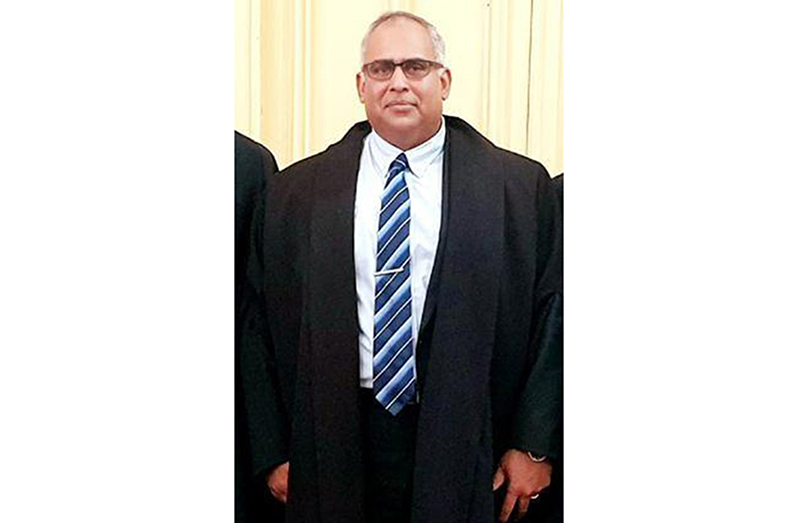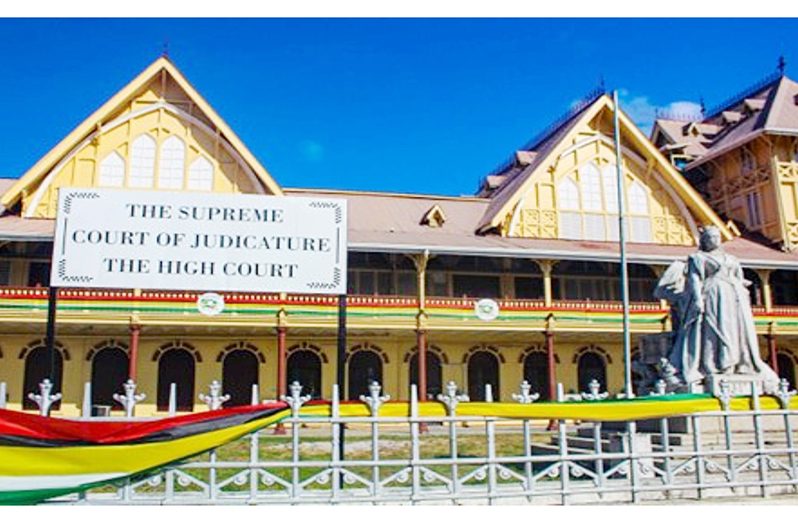Three weeks later…
–causes delay in state’s appeal as deadline nears
THREE weeks after a controversial ruling favouring the Guyana Teachers Union (GTU), the government finds itself mired in bureaucratic delay as it awaits the written judgment from High Court Judge Sandil Kissoon.
In his ruling on April 19, Justice Kissoon held that the teachers’ strike was legitimate since collective bargaining between the Ministry of Education and the union had not been properly undertaken.
Expressing grave concerns over the ruling’s legal merit, Attorney-General and Minister of Legal Affairs, Anil Nandlall, S.C., had raised alarms about its potential ramifications on future labour relations.
He vehemently labelled the decision as “bad in law,” stressing its profound impact on the nation’s educational landscape and broader labour dynamics.
Despite assurances of prompt delivery, the written judgment remains elusive, prompting frustration within government ranks. Attorney General Nandlall aired his grievances during a recent broadcast, lamenting the delay and demanding swift action.
“Shortly after delivery that was the promise. To date we have not received a copy of that decision,” he said.
In a proactive move, the Attorney General has mobilised legal resources to expedite the retrieval of the judgment, signalling the government’s unwavering commitment to due process and justice.

The impending legal battle looms large, with the government poised to challenge what it perceives as a flawed ruling that undermines the sanctity of collective bargaining agreements.
As the clock ticks, the government faces a critical deadline, forcing it to consider pre-emptive legal manoeuvres in the absence of the awaited document before the six weeks deadline expires.
Amidst the uncertainty, the government remains steadfast in its pursuit of justice and the protection of national interests.
With the future of labour relations hanging in the balance, stakeholders await the resolution of this legal saga, mindful of its far-reaching implications for Guyana’s educational system and the broader socio-economic landscape.
Earlier this week, the GTU resumed its call for industrial action. However, the Government of Guyana reaffirmed its commitment and said that it is ready to continue engagement with the union on the Multi-Year Agreement from 2024 onwards.
This was according to the Permanent Secretary at the Ministry of Education, Shannielle Hoosein-Outar, who, in correspondence to the President of the Union, Mark Lyte, said that the ministry was surprised at the proposed continuation of industrial action.
Representatives of the GTU and the Education Ministry had a meeting in March to resume the collective bargaining process, which had been interrupted by a strike in February.
At that meeting, the ministry upheld the government’s position that discussions surrounding salary increases should be from 2024 onwards.
The Permanent Secretary explained that increases for the prior years would have financial implications and the 2024 budget does not have the fiscal space to facilitate the retroactive payment of salaries for teachers during the period of 2019 to 2023.
As such, the Union representatives were asked to submit a proposal to the ministry that would capture their request for a multi-year agreement commencing 2024.
That meeting reached an impasse as GTU indicated that they were only interested in discussing salaries between the 2019 to 2023 period. The representatives of the Union further abandoned the process and walked out of the meeting.
The strike was eventually called off on March 4, 2024, as a result of court-ordered mediation conducted by two Senior Counsel, Edward Luckhoo and Robin Stoby.
The teachers went on strike despite the fact that the Ministry of Education has satisfied more than half of the 41 proposals made by the GTU for better working conditions in just three years.
Government officials had also challenged the union’s claims by highlighting that discussions were ongoing to satisfy the other requests. Since the requirements for conducting a strike were not satisfied, the government had declared that the strike action was illegal.
The GTU action against the government, in which the Guyana Trades Union Congress (GTUC) was added as an intervener, was centred on whether teachers can legally refuse to work while still being paid, as a form of protest or negotiation.
In his decision, the judge stated that there was evidence to show that the government failed to engage the union in collective bargaining, unilaterally forced salary hikes on teachers, and snubbed or rebuffed the union’s “every attempt” to negotiate collectively, as envisaged by Article 147 (3) of the Guyana Constitution, which states that neither an employer nor a trade union shall be denied the right to enter into collective arguments.
The government was ordered to pay the GTU $500,000 in costs and GTUC, $750,000 in costs.



.jpg)









